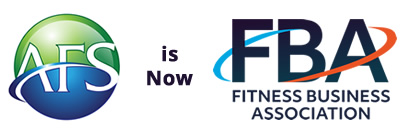 By Dr. Ayla Donlin, Special AFS Contributor
By Dr. Ayla Donlin, Special AFS Contributor
As a trainer, in addition to providing exercise programming, you're likely answering many nutrition related questions. You’ve probably been asked, “should I be doing fasted cardio?”
As with most exercise and nutrition related advice, the answer to this question depends on many factors. In this blog post, you’ll read about the pros and cons of performing fasted exercise, specifically, fasted cardio. You can then advise your clients on what you think is best for them.
If you perform a simple internet search for "Fasted Cardio", the top results that pop up will likely have conflicting messages, with some titles telling you that fasted cardio is beneficial for burning fat, and other titles telling you that the benefits of fasted cardio are a myth. With these conflicting messages, it's no surprise that clients have a hard time deciding what is “good” or “right” information.
Before we get into the research and expert opinion around fasted cardio, here are a few definitions to share with your clients:
Fasted cardio refers to cardiorespiratory exercise performed in a fasted state. A fasted state is one in which you have completely digested and absorbed your last meal/snack and your insulin levels are at a low or baseline level. In general, this would be at least three to four hours after a meal. In most research studies, fasted exercise is performed in the morning before the first meal of the day, and the participants have not eaten for eight to twelve hours.
Other definitions include fat lipolysis and fat oxidation. Fat lipolysis is the breakdown of fatty acids and glycerol stored inside fat cells called adipocytes. After lipolysis, the fatty acids and glycerol can leave the adipocyte, enter the bloodstream, and travel to tissues where they are used for fuel. Fat oxidation occurs when fatty acids are burned for energy inside of the mitochondria of a cell. In short, fat lipolysis is the breakdown and mobilization of fat, and fat oxidation is the burning of fat for fuel. Some research suggests that fat lipolysis and oxidation increase when exercise is performed in a fasted state.
Yet another key term to define with your clients is energy balance. Energy balance refers to the difference between the number of calories consumed through food and beverage and the number of calories expended through purposeful activity, activities of daily living, and the thermic effect of food (the energy it takes to digest food). If a client is in a positive energy balance, he/she is consuming more calories than he/she is expending, and will gain weight. If a client is in a neutral energy balance, he/she is consuming and expending calories equivalently, and will maintain weight. If your client is in a negative energy balance, he/she is burning more calories than consuming, and will lose weight.
It is energy balance at the end of the day, the end of the week, and the end of the month that determines weight loss, maintenance, or gain. Other factors like sleep, stress, and hormonal balance come into play as well, so it’s not just as easy as counting calories - the point is that weight loss/fat loss is a complex process with many factors influencing the outcome.
There may be fat burning advantages to fasted cardio, however it comes down to energy balance over time for weight loss and fat loss.
Ok, now the research and expert opinion about fasted cardio.
As you would expect, opinions about fasted cardio are mixed among researchers, fitness professionals, and general exercisers. Some studies and articles claim that you will burn more fat during exercise if you are in a fasted state due to increased fat lipolysis and fat oxidation; however, that is only one small part of the equation. Other studies show that you will burn more fat and more overall calories 12 and 24 hours after an exercise session if you are in a fed state during the exercise session.
There may be fat burning advantages to fasted cardio; however, in the end, it comes down to energy balance over time for weight loss and fat loss. Other studies have shown that appetite increases to a greater extent following exercise performed in a fasted state rather than a fed state. This could lead to eating more calories later on in the day and lead to a positive energy balance even though the day began in a negative energy balance – something for your clients to be aware of.
One of the best ways for your clients to decide about where they stand regarding fasted cardio is to give it a try! Ask your clients to log how they feel before, during, and after a fasted cardio session and compare it to a fed cardio session. You can also track body metrics over time using fasted cardio to see if your clients experience weight loss or body fat changes to a greater extend. Enjoy the experiment.
Dr. Ayla Donlin is the director of the LifeFit Center @ The Beach, a health and fitness facility and educational laboratory on the campus of Long Beach State University (LBSU). Ayla’s passions are fitness, education, and well-being, and as a result, she holds multiple positions within higher education and the fitness industry.
Ayla is a lecturer in the kinesiology department at LBSU and has been teaching courses since 2008 in the fitness and sport studies options. She is also the chair of the Exercise is Medicine on Campus (EIMOC) Leadership Team at LBSU and advises the EIMOC student organization.
Ayla has been active in the fitness industry for over 12 years as a group fitness instructor, personal trainer, group fitness director, master trainer, and health club general manager. She is currently an American College of Sports Medicine (ACSM) certified personal trainer and an Exercise is Medicine® credentialed fitness professional.
Ayla also serves as a consultant within the fitness industry. She has been working with Johnny G. since 2007 as a Master Instructor for Krankcycle® and became a Master Instructor for IN-TRINITY® in 2015. Ayla is also a Master Trainer for MYZONE®, a wearable physical activity tracker that rewards effort. She creates educational content for the MYZONE® blog, Podcast, and learning management system.
As a passion and hobby, Ayla has organized, led, and participated in over 100 hours of Spin-a-thon/Krank-a-thon fundraisers benefitting various organizations like the Challenged Athletes Foundation.


Join the Conversation!